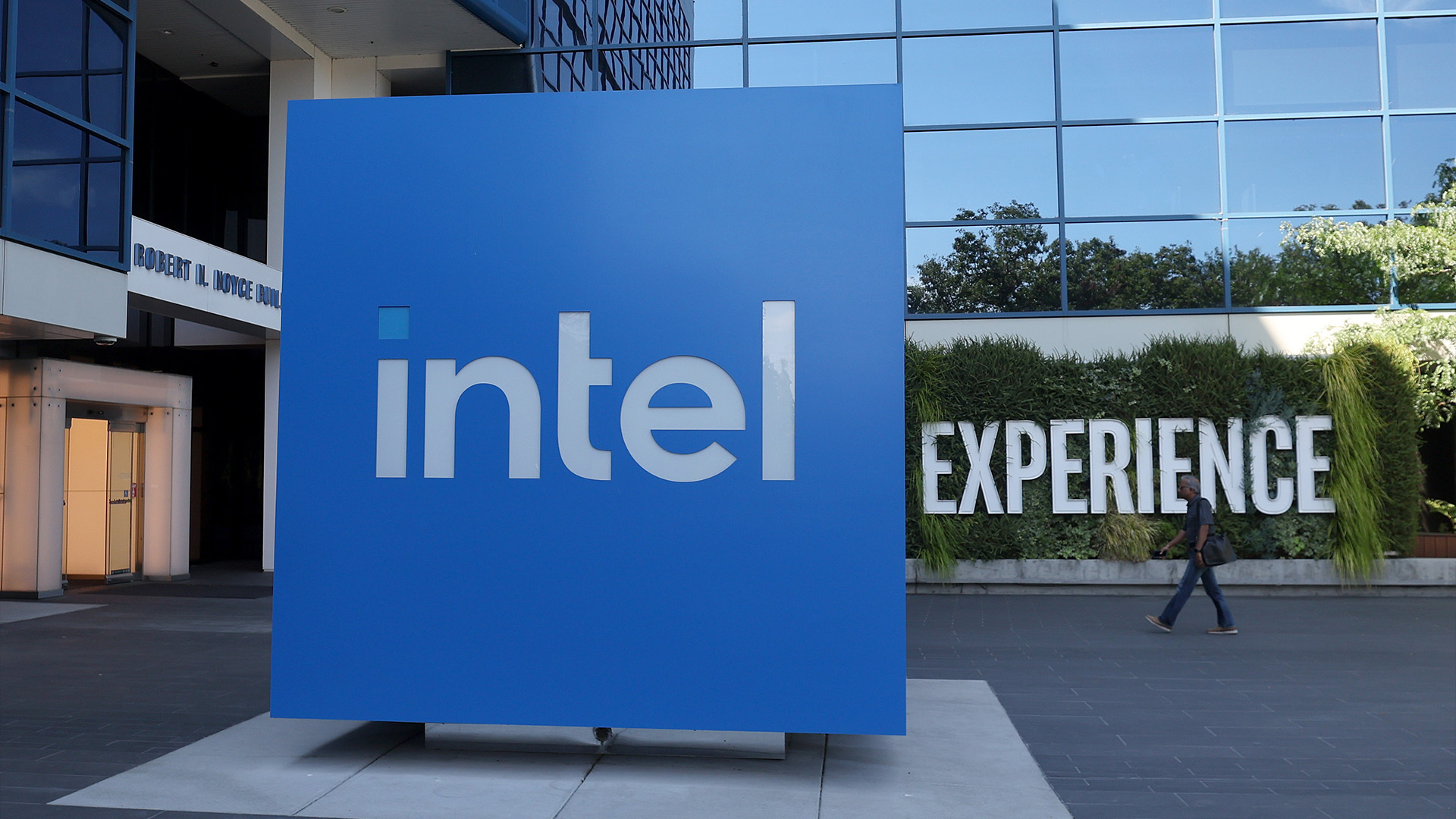
Simone Del Rosario
Intel is falling from grace and now it has two firms vying to catch it.
One, New York Times sources say San Diego-based Qualcomm is offering to acquire the company, which has a market cap of around $96 billion.
And two, Bloomberg sources say asset management firm Apollo Global Management has offered an investment lifeline worth up to $5 billion.
Intel has been in the semiconductor game since the ’60s and despite the growing demand in the industry, Intel is really falling behind its competitors.
Since the start of the year, Intel’s stock has plunged 53%. At the same time, you have a company like NVIDIA up 140%.
That performance may make it seem like you can get Intel at a discount, but an analyst I spoke with says a Qualcomm takeover would face significant regulatory issues. He said China would never approve such a deal and in fact, any semiconductor deals will be hard to push through because of how difficult it is to get approval from so many different jurisdictions.
What exactly is going on at Intel and how does it affect the billions of dollars the government promised the company through the CHIPS Act?
In August, Intel announced a $1.6 billion quarterly loss and plans to cut 15,000 workers.
Five months prior, the Biden administration and Intel had announced $8.5 billion in direct funding from the CHIPS Act to support the company’s several semiconductor projects, saying the projects would create 10,000 company jobs, 20,000 construction jobs and 50,000 indirect jobs.
And a week ago, the company confirmed another $3 billion in CHIPS Act funding for military chips.
Edward Snyder: Giving money to Intel is pretty much, in my opinion, throwing it down a hole.
Simone Del Rosario: That’s Edward Snyder, managing director of Charter Equity Research. I spoke with him on the phone about how Intel fell so far behind rivals like TSMC and Samsung.
Edward Snyder: All companies that are rich and successful for a very long period of time run the risk of becoming ossified and arrogant, and that certainly happened with Intel. And it wasn’t a problem when the industry was doing what it’s always been doing. But then when you get a change in the industry, it requires you to be nimble and aggressive and competitive. Those companies really run into problems.
Simone Del Rosario: It’s a sentiment the company is certainly familiar with. They have to be after losing half their market value.
Here’s CEO Pat Gelsinger after those disappointing quarterly earnings in August.
Pat Gelsinger: We see quite a number of areas where I’ll just say we’re not a nimble, efficient company, and as we look at it through this clean sheet lens, we’ve looked at every area, our GNA, our sales and marketing, our operational performance, as we look at our design teams, we haven’t been fully leveraging industry best practices and EDA and design practices.
Simone Del Rosario: Gelsinger called the layoffs the most substantial restructuring of Intel in decades. He’s been CEO since 2021. He was Chief Technology Officer during Intel’s heyday in the aughts and left the company in 2009.
Edward Snyder: They’re scrambling and desperately trying to change. But the culture isn’t built for change. It’s built for, ‘just keep doing what we’re doing,’ just crush everybody with their market share, so they’re incapable of reacting, my opinion.”
Simone Del Rosario: When Gelsinger first took the reins, he told 60 Minutes’ Lesley Stahl they were coming for Taiwan-based TSMC’s market share.
Lesley Stahl: They’re ahead of you on the manufacturing side.
Pat Gelsinger: Yeah.
Lesley Stahl: Considerably ahead of you.
Pat Gelsinger: We believe it’s gonna take us a couple of years and we will be caught up.
Simone Del Rosario: A couple of years on, there’s still a marathon to go. TSMC has about 62% of the global foundry market share, while Intel’s not on the map.
If you like learning about company CEOs, check out our story on Nike’s newly-named CEO Elliott Hill who started at the company as an intern. That’s at SAN.com or the Straight Arrow News app.









